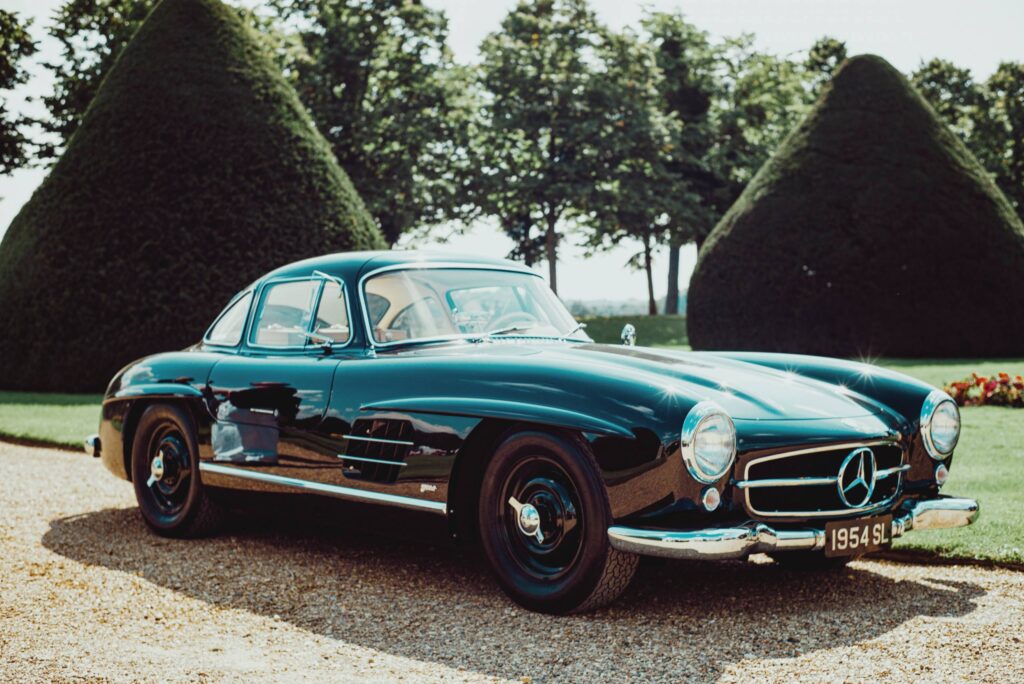If you own a classic car, you already know it’s more than just transportation — it’s history, craftsmanship, and passion on four wheels. But when it comes to selling, insuring, or even restoring a vintage vehicle, you need to know its true value. That’s where classic car appraisals come in.
An appraisal provides an accurate, professional opinion of what your car is worth. But what actually determines that value? Let’s walk through the main factors appraisers consider and what you should know as a classic car owner.
1. Make, Model, and Year
Some cars are collectible simply because of who made them and when. For example, a 1967 Shelby GT500 Mustang is always going to hold more value than a base-model 1967 Mustang coupe.
The rarity of the make and model sets the foundation for value. The year also matters — certain years are more desirable because of limited production, performance upgrades, or unique design features.
2. Rarity and Production Numbers
Classic cars that were produced in smaller numbers tend to be worth more. Limited-edition models, or vehicles with special factory options, attract collectors who are willing to pay a premium.
For instance, Chevrolet built nearly 250,000 Camaros in 1969, but only a small fraction were ZL1 or COPO models. That rarity drives prices much higher.
3. Condition of the Vehicle
Condition is one of the biggest factors in any appraisal. Appraisers look at:
- Body and paint quality
- Engine performance and originality
- Interior wear and restoration quality
- Signs of rust or damage
Cars in original, well-preserved condition (sometimes called “survivors”) are often valued higher than poorly restored versions.
4. Originality vs. Modifications
Collectors tend to value originality. A car with its matching-numbers engine (the one it left the factory with) usually appraises higher than one with a replacement motor.
That said, some tasteful modifications — like improved brakes or modern safety upgrades — can make a car more appealing to everyday drivers. But for serious collectors, originality usually wins.
5. Documentation and History
The story behind a car adds real value. An appraiser will consider:
- Maintenance and restoration records
- Original bill of sale and ownership history
- Documentation of rare options or factory upgrades
- Awards or recognition from car shows
A classic car with a complete paper trail can command thousands more than a similar car without one.Professional classic car appraisals often highlight how well-documented maintenance and restoration records can significantly raise value.
6. Market Trends
Just like real estate, the value of classic cars fluctuates with the market. Muscle cars may be hot one year, while European sports cars gain attention the next.
For example, Hagerty (a well-known classic car insurer) tracks collectible car values. Their 2023 report showed Japanese classics like the Toyota Supra and Nissan Skyline rising quickly in value, while some American muscle cars leveled off.
Professional appraisers stay on top of these trends so you get an accurate number, not just a guess.
Comparison Table: What Impacts Value Most?
| Factor | Impact on Value | Notes |
| Make/Model/Year | High | Collectibility starts here |
| Rarity | High | Limited production = higher demand |
| Condition | Very High | One of the most important factors |
| Originality | High | Matching numbers matter |
| Documentation | Medium–High | Complete history adds credibility |
| Market Trends | Medium | Can rise or fall over time |
Limitations and Trade-Offs
It’s worth noting that appraisals are an informed opinion, not a guaranteed selling price. Market demand, buyer interest, and timing all play a role. For example, a rare car might sit unsold for months if you’re asking too much — even if the appraisal is accurate.
Still, an appraisal gives you a solid, research-backed foundation for decisions about selling, insuring, or restoring your car.
Conclusion
A classic car’s value isn’t just about age — it’s about rarity, condition, originality, history, and the current market. Getting a professional classic car appraisal ensures you understand what your car is truly worth, whether you’re protecting it with insurance, preparing to sell, or simply documenting its place in history.
At the end of the day, knowing your car’s value isn’t just smart — it’s peace of mind for any collector or enthusiast.






